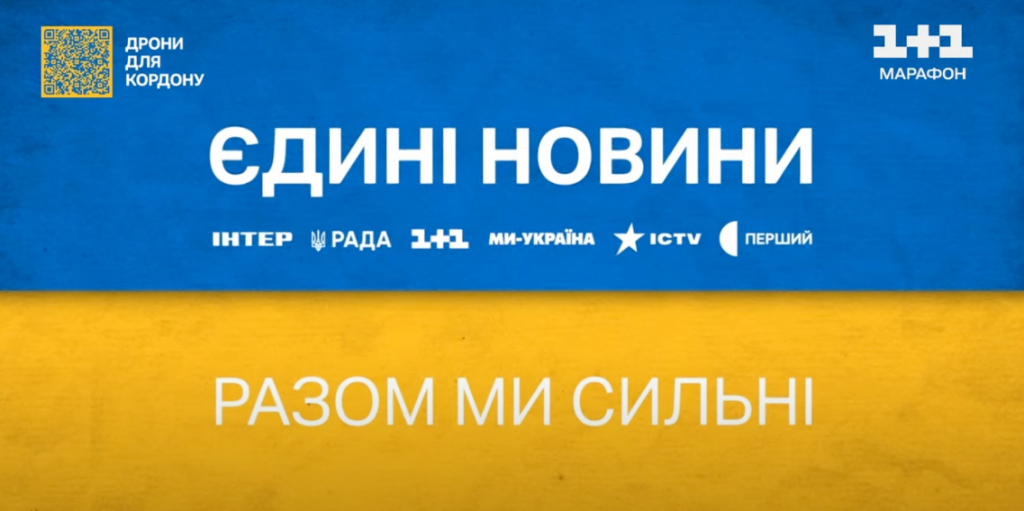The Ukrainian public broadcaster Suspilne has launched its own news broadcasting on the Pershyi nationwide TV channel separate from the telethon called “Yedyni Novyny” (“United News”). The telethon was initially created as a response to Russia’s invasion but has been accused of monopolizing television coverage and stifling dissent. Some opposition channels were excluded from the telethon due to their political stance, leading to criticism from organizations like Reporters Without Borders. Suspilne was pulled out from the telethon’s prime-time evening slots after accusations of organizing an illegal scheme to exempt draft-aged men from military service.
The Chairwoman of Suspilne’s Supervisory Board stated that Suspilne will enhance the news block on its Pershyi channel within the updated telethon’s memorandum terms. The company also expressed a willingness to share its in-house-produced content, such as documentaries and investigations, with all telethon participants. The disagreement arose when the telethon participants could not agree on the distribution of prime-time evening slots, with Suspilne insisting on broadcasting during those time slots. The government has budgeted over Hr 1.5 billion for the telethon and foreign broadcasting in 2024.
The U.S. State Department mentioned Ukraine’s telethon in its 2023 Human Rights Report, noting that it allowed an unprecedented level of control over primetime television news. Some media outlets reported facing pressure from the President’s Office and being removed from the telethon. The telethon has been seen as a way for the Ukrainian government to have more control over the information being disseminated during the war with Russia. However, it has also faced criticism for limiting media pluralism and press freedom.
The TV marathon has been a critical project for the Ukrainian government during the war, aiming to provide united news programming produced by the country’s biggest media outlets 24/7 on major TV channels. Launched as a response to Russia’s invasion, the telethon was meant to showcase a united front in the face of aggression. However, concerns have been raised about the telethon’s impact on media pluralism and press freedom, with accusations of censorship and exclusion of certain channels based on their political stance.
While the telethon has been praised for its ability to provide continuous news coverage during the conflict with Russia, it has also faced criticism for potentially limiting journalistic independence and diversity of viewpoints. The decision to pull Suspilne out of prime-time evening slots and air its news broadcasting separately reflects the ongoing debate and disagreement within the telethon participants about the distribution of airtime. As Ukraine continues to navigate the challenges of wartime media coverage, the future of the telethon and its impact on press freedom remains a topic of ongoing discussion and scrutiny both domestically and internationally.


